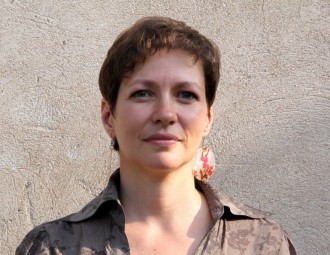Tatsiana Vadalazhskaja: In new season, Flying University will work with identity and individuality

The new school season in the Flying University will be announced in mid-September; the classes will traditionally start in mid-October.
The “EuroBelarus” Information Service found out what should be this year’s expectations of the Flying University from the coordinator of the Flying University Tatsiana Vadalazhskaja.
- We will announce our program before the Week of the Belarusian Thinking, and then it will be possible to enroll on the courses. During the Week, it will be possible to look at all the people who teach in the Flying University.
- What would this year’s curriculum distinctive in?
- On the one hand, a lot of courses will continue. If talking about the distinctive features, this year will be aimed at working on identity and individuality, both personal and conjoint.
The theme of Game will continue, too; and we won’t only be telling about it, but also continue to further use it in our activities. We plan to hold monthly where organized in a game format to discover certain problems.
Schools of Masters of Game will certainly continue their work and will have more spots available, so you can join this community.
Last year, we found an interesting format – a philosophical interview of listeners with thinkers, and this year we are planning to offer such form of communication to some philosophers.
As for the courses, they, as I’ve already mentioned, they will be aimed at building individuality and identity. Ihar Babkou will read one of these new courses on postcolonial theory. A course by Uladzimir Matskevich, who will continue introduction to philosophy, also will focus on the individuality as a necessary component of the system of thought. The course by Iryna Dubianetskaja will continue, too. Mihail Anempadystau will also have his course with some new insights into the Belarusian style and design.
- Will there be public lectures?
- We are launching new season pretty energetically with the Week of Belarusian Thinking. Also, together with "EuroBelarus", we’ll continue last year's series of "Imagining Belarus" and try to invite new speakers. Therefore, we’ll certainly have public lectures, but within this theme.
- It is believed that this format brings the Flying University "closer to the people", because the Flying University is a fairly closed community. Do you plan to get on the new level and expand the audience?
- Today the format of public lectures is not so important for us, as it was in the beginning, when we sought not only to be "closer to people", but also to make public intellectual events a natural phenomenon of public life in Minsk. Now the Flying University’s audience counts hundreds of people and it's not such a small and closed community.
Nevertheless, we continue taking care of those who don’t have the opportunity to attend courses and seminars. In the near future we plan to launch a new version of the distant platform, which will offer a more convenient format of education and its better quality.
- Given Minsk overbusy schedule of public events, do you plan to expand in the regions?
- We have a lot of experience in the regions, and occasionally we make new plans, but we understand that it’s rather difficult to work in the regions from Minsk. We need local communities to be formed; as University is not made of people who come to lectures once a week, but of people who create something together.
-
03.01
-
07.10
-
22.09
-
17.08
-
12.08
-
30.09



























